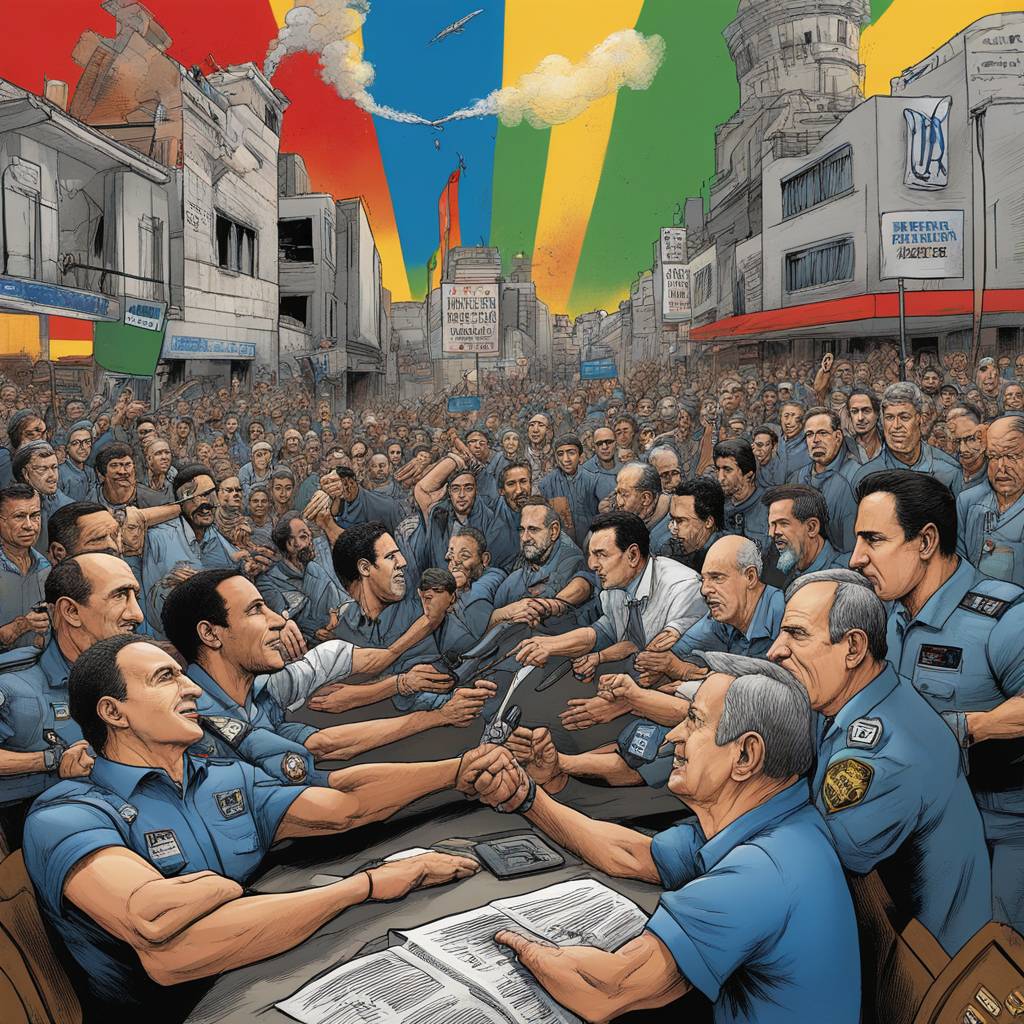Prime Minister Benjamin Netanyahu faced mounting pressure from the public and allies as thousands protested outside Israel’s Parliament, calling for early elections and his removal from power. The protest, one of the largest against the government since the start of the war in the Gaza Strip, featured demands for new leadership and accountability for the handling of the conflict. Demonstrators in Jerusalem expressed frustration with the government’s response to the war and the failure to prioritize the release of hostages held by Hamas militants.
The protests coincided with in-person talks in Cairo to discuss a possible cease-fire and the release of hostages, further highlighting the challenges faced by Mr. Netanyahu. The Prime Minister faced criticism from both Israelis and international allies for the heavy civilian toll in Gaza and the lack of progress in securing the release of hostages. Calls for Mr. Netanyahu’s resignation intensified as public dissatisfaction grew over his administration’s response to the conflict.
As pressure mounted on Mr. Netanyahu, he underwent surgery for a hernia and met with families of soldiers being held in Gaza. Despite criticism, Netanyahu maintained that his government was seeking a “complete victory” over Hamas and emphasized his efforts to secure the hostages’ release. However, growing calls for a lasting cease-fire and concerns over the government’s handling of the conflict continued to challenge his leadership.
The war cabinet was expected to convene to discuss the possibility of a cease-fire, but talks had stalled due to disagreements over critical issues such as the return of displaced Palestinians and the permanency of a ceasefire. Humanitarian officials warned of a looming famine in Gaza if a cease-fire was not established to allow for aid access. Both sides were urged to prioritize the humanitarian situation in Gaza and work towards a resolution to end the conflict.
The dispute over a bill to extend ultra-Orthodox Jews’ exemption from military service added another layer of complexity to the political landscape, potentially leading to the collapse of Mr. Netanyahu’s government. The right-wing coalition faced internal divisions that could impact the government’s stability, further complicating efforts to address the conflict in Gaza. The unrest surrounding the current political situation highlighted the challenges facing the government in navigating both internal and external pressures.
Efforts to reach a workable agreement on a cease-fire have been ongoing, with mediators from Egypt, Qatar, and the United States facilitating negotiations between Israel and Hamas. However, finding common ground on critical issues such as the return of displaced Palestinians and the conditions for a lasting peace remained elusive. As the conflict in Gaza continued its sixth month, the need for a resolution that addressed both humanitarian concerns and the broader political implications became increasingly urgent.


